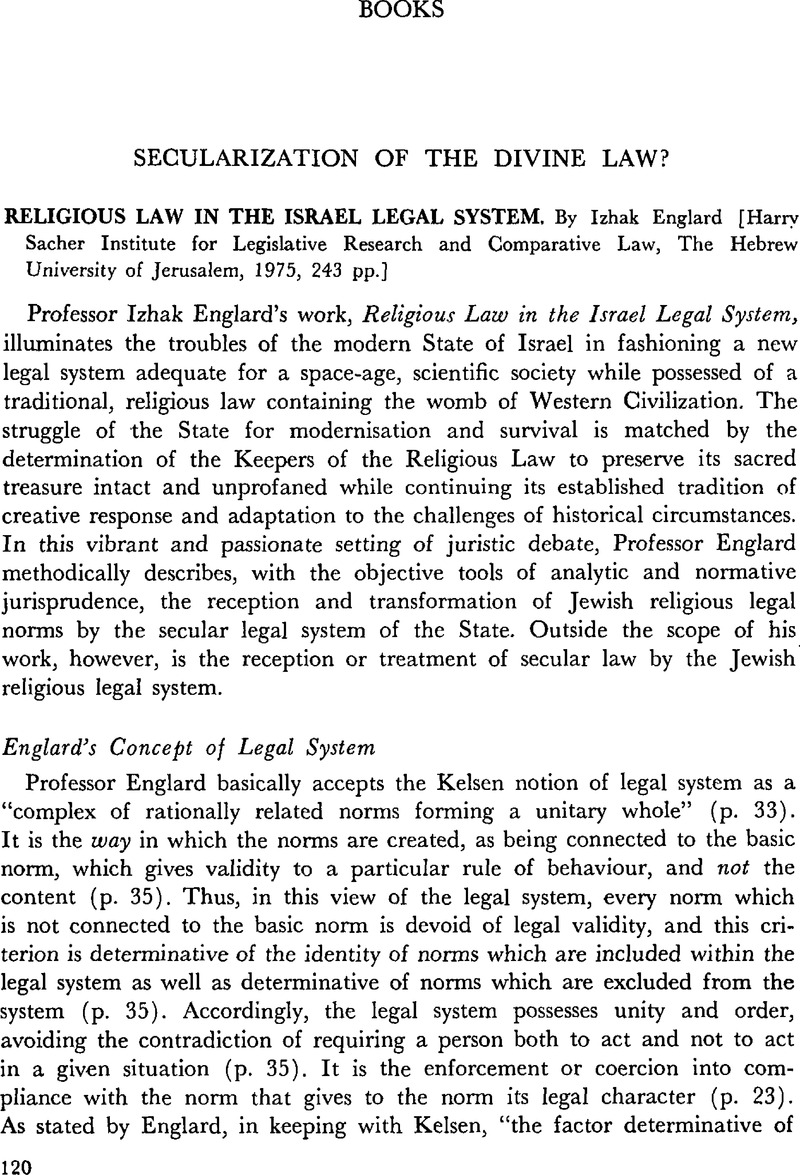No CrossRef data available.
Published online by Cambridge University Press: 12 February 2016

1 Quoting from Babylonian Talmud, Shabbat, 31a and Rashi's comment, ibid. Englard also calls attention to the views of Canon Law jurists “… in view of the fundamental argument that lawyers who do not believe in the Catholic faith are incapable of grasping the essence of Canon Law. According to this view, the modern representatives of which include Del Giudice and Baccari, personal identification with the fundamentals of the Catholic faith (sentire cum Ecclesia) is a precondition of any profound understanding of the Canon Law” (p. 107).
2 This is not to deny that the secular judicial system of Israel possesses pious, religiously trained judges who may be eminently qualified to serve in the capacity of religious judges, or that there are capable Rabbinical judges who may be well-qualified to serve on the secular court. On the whole, however, secular and religious judges are differentially educated and qualified through experience.
3 Justice Cohn, Haim H., Jewish Law in Ancient and Modern Israel (Ktav Publishing House, Inc., 1971) 46–7Google Scholar.
4 See, in this connection, Elon, Menachem, The Principles of Jewish Law (Keter, 1975) 91.Google Scholar
5 See, for example, Kotik v. Wolfson (1951) 5 P.D. 1341, discussed by Professor Englard (pp. 177–183).
6 The analogy of Jewish religious law to foreign law within the principles of private international law is more or less prevalent throughout the book.
7 “The Sources and Nature of Jewish Law and Its Application in the State of Israel, Part I” (1967) 2 Is.L.R. 516.